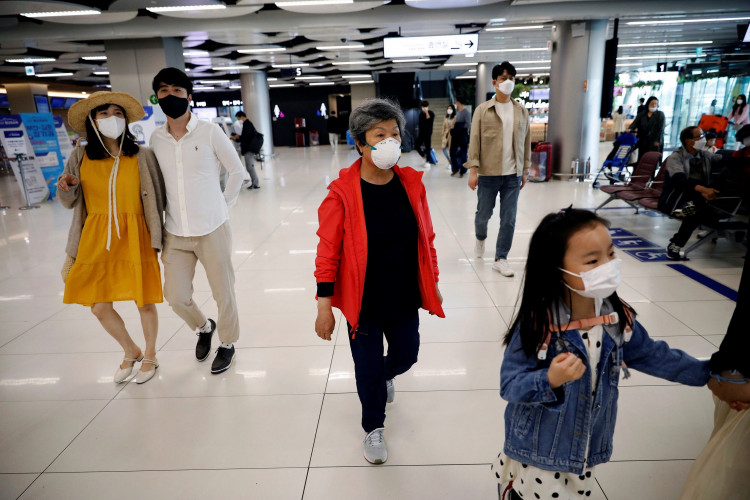Smaller Asian countries have controlled COVID-19 infections in their areas but bigger economies like South Korea and Singapore are battling ferociously with cluster infections.
Seoul in Despair as Cluster Infections Add Up
South Korea reported a drop of 38 new coronavirus cases on Tuesday from 57 a day earlier but Seoul is still in a bid as 36 of the new infections came from the capital city.
The Korea Centers for Disease Control and Prevention (KCDC) further reported that of the 313 local transmissions since June 1 in the country, Seoul accounts for almost 97 percent of all the cases.
Seoul's crisis sprang from a series of cluster infections in May that started with nightclubs in the Itaewon area. From there, the Samsung Medical Center cluster was detected, and recently, health authorities in the capital area are keeping their eyes on a logistics center run by e-commerce leader Coupang.
There are also smaller clusters among door-to-door business retailers, sports-related facilities, and the earlier clusters linked to karaoke rooms.
While the Seoul government has been hard at work in implementing sanitization and disinfection measures, officials are wary of the potential resurgence of new clusters from asymptomatic cases.
As of Tuesday, South Korea registered a total of 11,852 confirmed COVID-19 cases and 274 deaths.
Officials Call for Stricter Penalties for Anti-Coronavirus Regulations Violators
During an emergency Cabinet meeting on Tuesday, South Korean Prime Minister Chung Sye-kyun said violators of regulations set to battle the spread of the novel coronavirus in the country are "making efforts of the majority of Koreans go to waste."
Chung further noted that amendments will be done on laws created to control COVID-19 with the goal of increasing penalties on violators who continue to breach protocols.
A day earlier, 304 out of 21,151 nightclubs, bars, and religious facilities were found to have violated safety codes under the South Korean government's anti-coronavirus strategy. The said violators have since been handed down with administrative orders.
Singapore's Reliance on Foreign Workers for Labor
Many construction companies in Singapore have a labor workforce dominated by foreign workers and the reliance on these workers may have cost the city-state more than expected due to widespread cluster infections within the said group.
While the costs are not too different when it comes to hiring local and foreign workers, the issue is that not too many locals are up for labor jobs in the construction industry. Most of those who respond to job posts are foreigners from neighboring countries.
The issue on Singapore's reliance on foreign workers was raised once more amid the city-state's battle against cluster infections linked to foreign work dormitories or boarding facilities.
Before the spike in cases among foreign laborers was determined, Singapore was praised for its apparent control of the COVID-19 situation. However, things have changed since then and the bustling city-state now has over 38,000 confirmed coronavirus cases.
Vast Majority of New Cases Still Among Foreign Workers
Of the 218 new confirmed cases in Singapore on Tuesday, the majority still makes up of residents in foreign worker dormitories, raising further concerns about the relationship between foreign labor reliance and the second wave of infections.
The Ministry of Health (MOH) continues to trace contacts and carry out disinfection measures. However, it remains to be seen how long the city-state will battle against cluster infections among work permit holders.
As of Tuesday, Singapore logged a total of 38,514 confirmed COVID-19 cases and 25 deaths.





